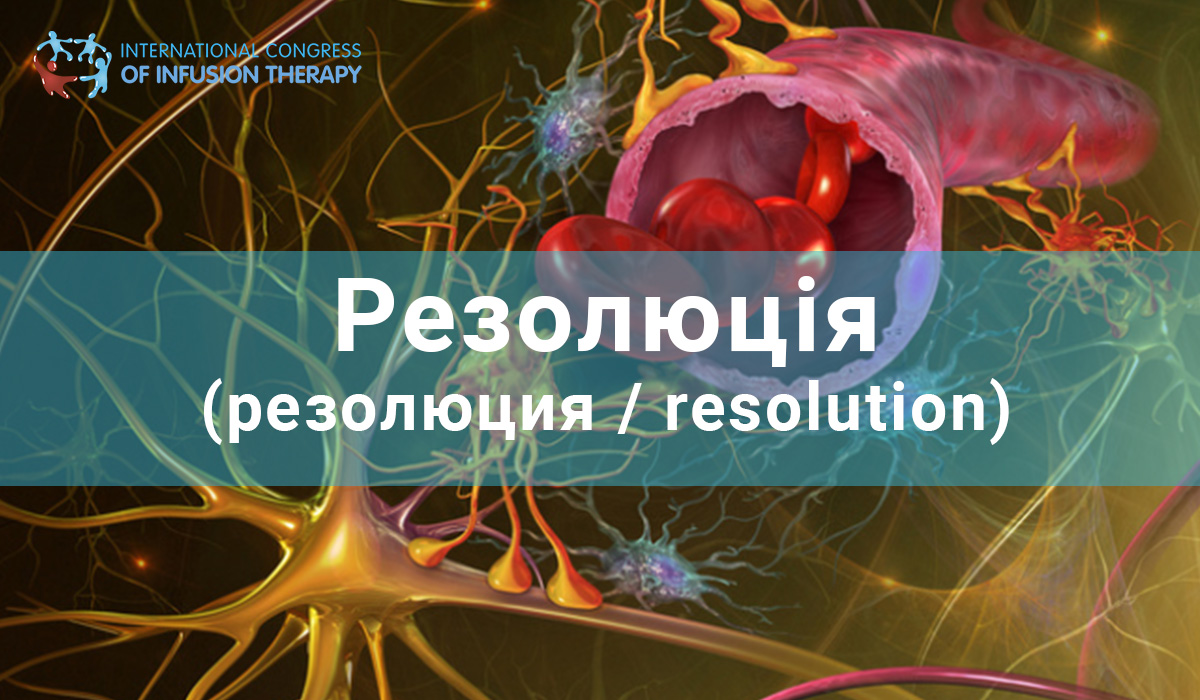Resolution of Teleconference "Management of stroke: what’s new? Live lawyer’s counsel"
01-02-2021

Almost 7 000 health care specialists have registered to participate in the Teleconference «Management of stroke: what’s new? Live lawyer’s counsel».
Teleconference agenda consisted of several topical units of reports:
- management of acute cerebrovascular accident
- neurological complications in case of COVID-19 and post-COVID period
- legal bearings of the profession of a physician
The key specialists of the country have shared their practical experience within the framework of the event. Interdisciplinary format of the Teleconference was ensured by speakers from different special fields: neurologists, anesthesiologists and lawyers.
6 main reports were offered to the participants for review and discussion and they were dealing with the following issues:
- Management of stroke: what’s new?
- Phenomenon of deterioration in the condition of a patient in the next 2-5 days after the acute cerebral stroke: how to influence?
- Issues related to use of a stroke scale to assess the condition of patients with acute cerebral stroke.
- Possible consequences of coronaviral infection neuroinvasion.
- Neurological complications in case of COVID-19: patient surveillance.
- Long-term nervous and psychological effects of earlier COVID-19 – possible pharmacological correction.
- Legal bearings of the profession of a neurologist.
Conclusions and decisions based on discussion of reports:
- The concept “time = brain” means that in case of a stroke a person needs emergency aid. The health and quite often even life of the person depends on the quality and timeliness of provided aid.
- The conducted analysis of the finalized first stage, inpatient stay in hospital, in the research based on the SCTX protocol (Stroke Concomitant Treatment with Xavron) gives reasons to speak about advantages of use of Xavron as a supplementary treatment during the acute period of ischemic stroke. Its efficiency is proved by the indicators of the disease progression – faster clinical stabilization of patients, faster restoration of impairment of consciousness, causing earlier promotion and beginning of rehabilitation.
- According to the SCTX protocol, the analysis of continuity and intensity of impairment of consciousness during the next 2-5 days proves the protective potential of Xavron regarding the risk of brain edematisation in case of acute cerebral stroke.
- All doctors participating in management of patients with stroke (neurologists, general practitioners, neurosurgeons) are obliged to have necessary practical skills to assess patients against standard stroke assessment scales and impact assessment scales, patient’s functional status (at the time of hospital discharge and on the 90th day after onset of disease).
- Virus SARS-CoV 2 penetrates into the central nervous system through the routes of transneural and hematogenic invasion. Corona virus reaches central brain structures through the olfactory bulb and from this very point spreads in the central nervous system with further development of neurological complications. Respiratory pathogens may remain in the central nervous system and it’s possible that this persistent infection will become a factor or co-factor for pathogenesis of long-lasting neurological consequences. It proves how it is important to start multi-component therapy right in time.
- It might be reasonable to add edaravone (drug Xavron) to the COVID-19 intensive treatment scheme, taking into account its ability to decrease presenting features of not only oxidative stress, but also of «cytokine storm», by significant decrease of B-cell stimulatory factor 2 content in particular. In such a way we manage to stop neurologic symptoms and to control systemic inflammatory response level.
- Myalgic encephalomyelitis or chronic fatigue syndrome (ME/CFS) develop after COVID-19. It is a condition when one can observe low brain inflammation, lower cerebral blood supply or autoimmune condition in which the body produces antibodies attacking the brain, or combination of such abnormalities. Accumulation of pro-inflammatory cytokines in the central nervous system that pass through the blood-brain barrier may cause dysregulation of central structures, resulting in fever heat, disruption of sleep-wake cycle, cognitive deterioration and rapid fatigability.
- Mitochondrial antioxidants are the most important medicines in that respect, as far as reactive oxygen intermediates (ROIs) are key for inflammatory response, systemic background inflammation and «wave» of cytokines.
- Use of solutions with significant energetical effect based on xylitol plays an important role in the complex of adequate, pathogenetically substantiated treatment of asthenic syndrome.
- According to the laws of Ukraine the doctor shall be guided by the medical care standards (healthcare standards) and clinical protocols during the occupational activities, and shall apply evidence-based medicine and registered drugs.
- According to the Art. 12 of the European Charter of Patients' Rights any person shall be entitled for diagnostic or treatment procedures as far as possible adapted to his/her personal needs, it means that any patient has a right to get individual approach to his/her treatment.
- The NHSU, as an executive authority, shall be obliged to act exclusively based on, within the limits of and by the way envisaged by the Constitution and laws of Ukraine. The tasks of the NHSU do not include surveillance and control of prescription of drugs not envisaged by medical guarantee program, so the purpose of monitoring conducted by the NHSU in the corresponding cases is a budget implementation control and a quality of medical services provided within the frames of the medical guarantee program only.
You may download the resolution in English by this link.
Have you registered for our events before?
Subscribe to VIBER-BOT ‘Infusiontherapy’ – get up-to-date information, interesting announcements and news on the topic of infusion therapy!
